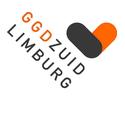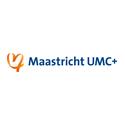In short
This project was developed to collect data on infection prevalence and on infection prevention behaviours, collectively and comparatively, in all the three of the Euregion Meuse-Rhine (EMR) countries (Germany, the Netherlands and Belgium). Knowledge on the spread of COVID-19 within the population in relation to compliance with infection prevention measures is limited. However, this is the basis for monitoring the disease and deciding whether to impose or lift measures.
Project description
Impact of COVID-19 on the Meuse-Rhine Euroregion examines prevalence of antibodies against SARS-CoV-2 and the effects of the measures taken to control the coronavirus in the three countries of our Euroregion, namely Germany, the Netherlands, and Belgium. The aim of this study is to determine to what extent the general population has developed antibodies against the coronavirus and has therefore come into contact with the virus. In addition, we want to examine how this proportion changes throughout 2021. Does the proportion of people with antibodies varies by region? And can we detect whether there is a link with health status, lifestyle and compliance with government measures to control the spread of the virus?
Sciensano, GGD Zuid Limburg, euPrevent and MUMC+ lead the research together with the health authorities of Düren, Aachen, and Heinsberg and the Ministry of the German-speaking Community of Belgium.
Two rounds of blood sampling tests will take place in order to see how COVID-19 antibodies have evolved among EMR citizens as a reaction to the various response measures. In addition, each participating region organises citizen summits providing citizens with a platform to voice how they have experienced the COVID-19. In December 2021 a congress will share the results of this project.
This project is co-funded by Interreg EMR which is a funding programme from the European Union.
Sciensano's project investigator(s):
Partners











